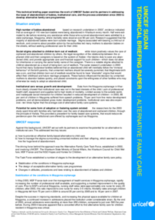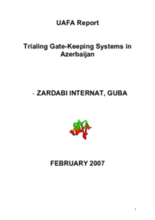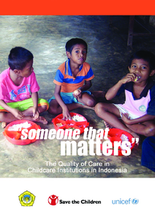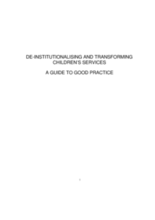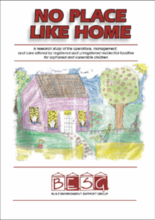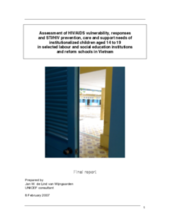Displaying 561 - 570 of 662
Examines the work of UNICEF Sudan and its partners in addressing the issue of abandonment of babies, institutional care, and the process undertaken since 2003 to develop alternative family care programmes.
A resource site based on the first Regional Consultation on Child Care System Reform held in Sofia in early July. The consultation brought together 120 key social welfare delegates from Albania, Bosnia & Herzegovina, Bulgaria, Croatia, UN-administered Kosovo, FYR Macedonia, Montenegro, Romania, Serbia and Turkey.
In Georgia, UNICEF and EveryChild have teamed up to place children in need of alternative care in small, supervised apartments as an alternative to orphanages.
A clear, concise, and evidence-based summary of the effects of institutional care on children. Identifies key steps to transforming children's services to promote alternative care. Links to training resources at European Union Daphne Project website.
Examines practice of using institutional care for children in poverty and recommends alternative responses to maintain families.
Documents implementation of Azerbaijan's national de-institutionalisation and alternative care programming
Comprehensive evaluation of national responses and level of care standards for children without parental care in Indonesia.
This good practice guide provides a comprehensive description of the steps involved in the process of moving from institutional care to community-based services.
A study of the management, operations, and care offered by institutions for AIDS orphans in South Africa. It compares the findings of registered and unregistered institutions.
Qualitatively assesses the vulnerability of children living in institutional care in Vietnam. Includes specific recommendations for systems strengthening to reduce vulnerability in various institutional contexts.

